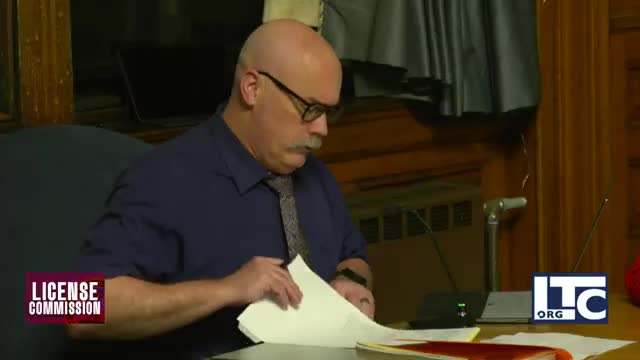Lowell License Commission refers draft "general" all‑alcohol rule back to law department after public hearing
Get AI-powered insights, summaries, and transcripts
Subscribe
Summary
The Lowell License Commission on Oct. 30 held a public hearing on proposed changes to on‑premises alcohol licensing, adopting G.L. c.138 §12(d) and referring back to the law department a draft for a new "general" all‑alcohol license after public and police concerns about age admission and enforcement.
Attorney Woods of the city law department led a public hearing on two regulatory proposals: adoption of G.L. c.138 §12(d) to allow wine‑and‑malt license holders to convert to a nontransferable all‑alcohol license without regard to statutory caps, and creation of a new on‑premises "general" all‑alcohol license designed for establishments whose primary purpose is serving alcohol rather than food.
Woods said the §12(d) adoption was "straightforward" and intended to protect long‑term city economic development in the event the statutory cap is reached. Commissioners voted to adopt the statute into local regulations after a public hearing with no speakers opposed.
The larger debate concerned the proposed "general" on‑premises license. Woods said Lowell currently treats many bars as "all‑alcohol restaurant" licensees, which allows underage patrons for food service. He said the proposed new license would let the city create rules specific to venues that primarily serve alcohol and do not offer food.
Public speakers and venue operators raised questions. Sean Gordon, owner of Taffeta Music Hall, asked whether the proposal meant admitting persons aged 18 or older; he said his venue had secured approvals to admit 18‑plus customers and uses ID scanners, security and wristbands to manage admissions. Gordon said: "We take that very seriously ... we have ID scanners. Everyone's tip certified. Our security checks everybody." Captain Peaslee of the Lowell Police Department noted the department's concerns about admitting anyone under 21, though he said a wristband requirement could be a workable compromise. Attorney Woods said he had found limited legal precedent for restricting admission to 21 and recommended a regulation limiting admission only to those under 18 (i.e., prohibiting admission of under‑18 patrons) while considering wristband/stamp requirements to assist enforcement.
Venue operators including Ernesto Lugo (Tesco Art Performance Center) expressed concern about how a new license would affect family or private events and noted that a special entertainment license carve‑out should be preserved. Woods said the law department plans to draft additional regulation language, including a possible carve‑out for establishments with special entertainment licenses (for example, Taffeta Music Hall and Lowell Memorial Auditorium) and options for wristband/stamp verification and time‑based restrictions.
After extended discussion and public comment, the commission voted to refer drafting of the general‑license regulation back to the law department with direction to return proposed language (including wristband or time‑based options and carve‑outs for special entertainment license holders) for the commission’s next available meeting.
No final rule for the general on‑premises license was adopted at the Oct. 30 meeting; the law department was asked to prepare alternative drafts for review and the matter was put on the Nov. 13 agenda.
